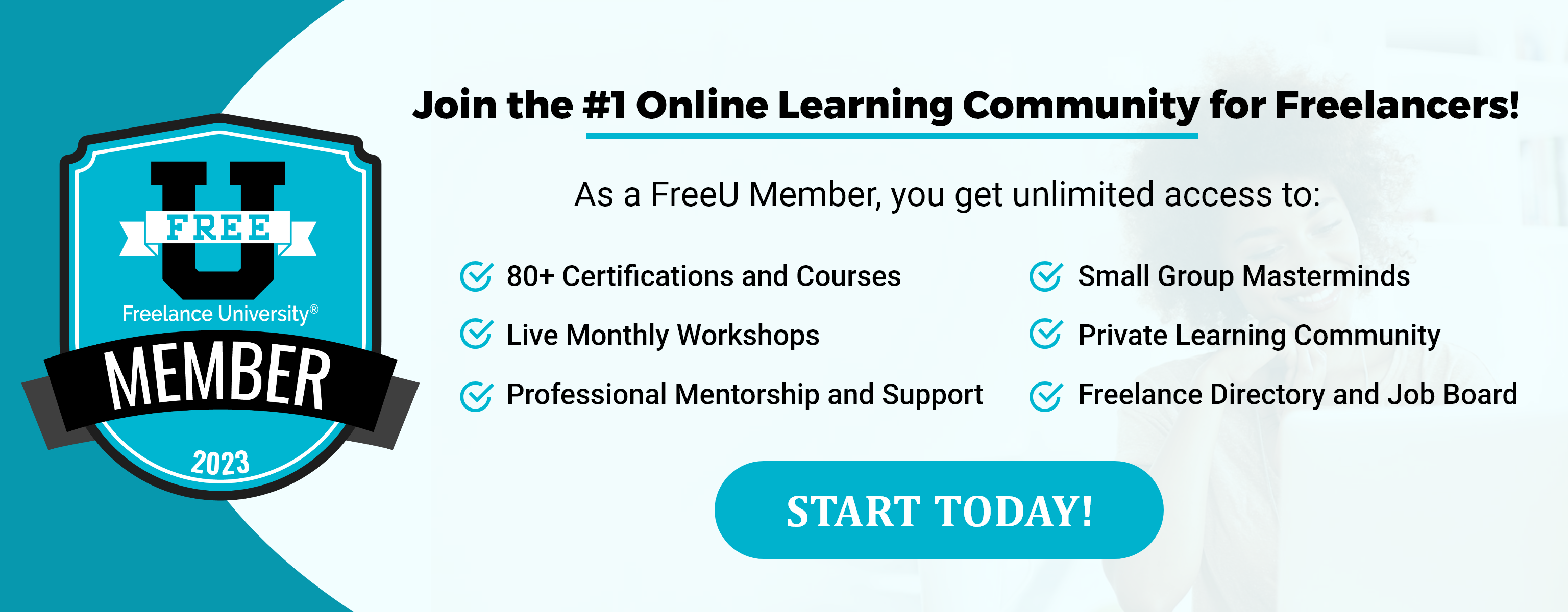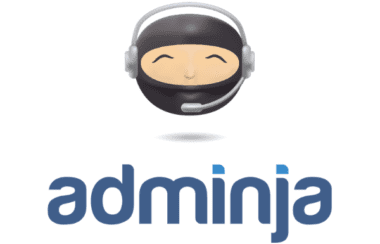Warning: Never Freelance Alone!
By Jena Kroeker

I knew I should have paid attention to the sign — “Never Freelance Alone.”
It was the year 2000, and I was training to do remote work using special software and technology. Students belonged to some sort of online freelance community, but I declined the invitation. I thought the group would distract me from my all-important work and studying.
And then I encountered difficulties with my equipment. With no one to bounce ideas off of, I let the problem persist too long, and when I finally phoned my instructor, I had lost valuable time.
The days marched on, and I finished my training. As I began doing freelance work, I spent a lot of time searching for resources so I could better perform my tasks. I never even thought of joining an online group to share and collaborate with others.
And then one day, my equipment broke down. I had to send it away for repairs and improvise to perform my tasks without it. I can’t help but think it would have been easier if I had been part of a community. Fellow freelancers might have had tips and recommendations to support me while I dealt with this challenge. And afterwards, I could have helped others navigate issues like this.
All in all, it took me nine years to join a freelance community. When I did, I was like a sleeping person who suddenly awoke and found the world had changed around her. I discovered the rates I was charging were way too low. I discovered there were easier ways to perform tasks with updated tools and software. And I discovered the value of connecting with others who knew what it was like to work from home.
Although I’ve always enjoyed the solitude of my home office, I needed to let people in. Instead of distracting me from my tasks, an online community provided support that improved my work and business practices.
Four Benefits of Joining a Freelance Community
In a previous blog post titled “Your Self-Care Plan for 2022,” we ask a pointed question: “Are you including practices that keep you feeling happy, fulfilled, calm, and balanced while building your business and performing your tasks?” These practices can be as individual as you are.
But there’s one essential practice that must be added to your self-care — connection with fellow freelancers. Whether you’re feeling lonely or enjoying your solitude, it’s a necessary part of caring for your personal and professional health. You and your business will both suffer if you try to make the journey alone.
“Surviving is important. Thriving is elegant.”
― Maya Angelou
Here are four benefits of a freelance community. They all add up to CARE that will help you thrive and survive.
C – Companionship
Do you feel lonely while working from home? Some people do, and that’s natural, especially if you enjoy being around people. Although family and friends can help fill the void left by co-workers in a physical office, it’s important to connect with people who work in your field.
An article titled “Why Finding A Freelance Community Is Essential For Niche Freelancers” explains the importance of connecting with fellow freelancers:
“Because other freelancers get what it means to freelance and can support you in ways others may not be able to. They know the struggle of managing different clients. They know what it’s like to manage your own schedule, find new clients, pay self-employed taxes — things that maybe your friends and family in employee jobs don’t understand.”
And this Freelancer Magazine article on “Finding Community” provides further insights:
“What can also be isolating, is the people freelancers are close to outside of work, often aren’t freelancers. Many of your family and friends live full-time lives on full-time schedules. You’re free when they aren’t, you take breaks when they can’t, and they have a whole gang of work-friends that you don’t. When you surround yourself with people who don’t live like you it can feel like you’re an alien. The solution, is community; finding fellow freelancers, not just to advance your career, but to share your life with. You just need to find them.”
The article then suggests researching nearby meetups, freelance networking events, or industry events where you can connect with others in person.
For example, Meetup.com is a site where you can join a group, find a group, or start a group based on shared interests and location. You can then choose to meet either online or in person.
A – Assistance
Just as I encountered difficulties with my equipment and software, you may encounter difficulties with various aspects of your freelance business. Maybe you’re struggling with a tool or app. Maybe you’re having trouble figuring out your rates. Or maybe an existing client is mistreating you.
All these challenges can be brought to a freelance community. You can unburden yourself and lean on the shoulders of others who are virtually walking alongside you.
In an article titled “Freelancing and feeling lonely? Combat isolation with these 6 top tips,” Sarah Townsend recommends you “find your tribe online.” In particular, she advises joining groups for the following reasons:
“Group members share their experiences and post questions, challenges and suggestions, and the community responds with help, support and advice. As with most things in life, you get out of online communities what you put in – so dig in, introduce yourself, browse their posts, give generously, and don’t self-promote unless you’re invited to!”
Facebook Groups are a great way to build community with other freelancers. You can create your own or join a group by searching categories like “Business, Finance, & Economics,” “Small Businesses,” and “Entrepreneurship & Startups.” You can also search for groups based on locations.
R – Resources
Another benefit of freelance communities is access to important resources. As the article above says, “Any freelance community can be a valuable resource for networking, learning new skills, and finding social connections, especially if you’re just starting to figure out this whole freelance thing.”
But more specifically, connecting with other freelancers provides job search resources that help grow your business. For example, you can have access to client opportunities you wouldn’t otherwise see. In her article, “Networking as a Freelancer,” Ashley Ziegler shares this recommendation:
“Look for groups that you may be able to advertise your services in (be sure to always check community rules/guidelines though because a lot of them don’t allow self-promotion). Maybe there’s a small business-owners group or even a community where jobs in your industry are frequently posted.”
And if you’re seeking advice or tips to grow your business and address certain concerns, a mentor or mastermind group can help. You may want one-on-one or smaller group interaction so you can delve deeper into your challenges and receive personalized advice. Often, these types of meetings take place via video conferencing like Zoom, so you speak in person.
For example, in our FreeU Masterminds groups, students meet with mentors in small-group sessions to connect and receive insights. And the FreeU 1-to-1 Mentoring Program offers students support, guidance, or skill-based training while they’re growing and building their businesses.
E – Education
At its very best, a freelance community won’t distract you from your education and studies. It will enhance them and spur you on to learn more. As this Harvard Business Review article, “What Successful Freelancers Do Differently,” explains,
“Cooperation with other freelancers is a strategic way to stay ahead. The advantages we found include group learning, as well as the ability to share market intelligence and upcoming opportunities.”
As an illustration, the FreeU Facebook community is a thriving, supportive, heartwarming place where students share questions and concerns about their skills and their businesses. Each post becomes a rich learning experience as fellow students and mentors comment with their advice and experiences. Often, other students indicate they’re following the discussion because they have a similar question. Everyone logs out that day better informed and equipped to move forward.
In addition, students and mentors share books they’ve read, resources they’ve come across, and lessons they’ve learned along the way. The community enhances and supplements all the education happening already through courses. Students gain further education as they discuss ways to effectively apply skills and navigate the ups and downs of running a business.
The Importance of Community at Freelance University
In his article, “How to build an online community,” Jay Clouse describes community as “a group of people with commonality — shared interests, values, or beliefs.”
He also believes that human connection, transformation, and finding a sense of identity are three core reasons why people are drawn to community.
That is certainly the case in our community at Freelance University. In addition to the four benefits described above, FreeU students and mentors enjoy sharing their wins and celebrating their milestones. In particular, our community manager’s “Success Friday” posts are a meaningful experience as students share not only their successes but their struggles, both personal and professional.
Over time, a deep sense of caring and belonging develop. Despite the distance between us, a closeness grows based on shared interests and growing friendships. We’re companions on a journey that leads to many destinations. And we provide support and nourishment to each other along the way.
If I could go back in time, I’d have accepted that invitation to my first freelance community. I can imagine many ways it would have enriched my experience and aided my journey.
And now we’d love to hear about your experience. Have you benefited from being part of a freelance community? If not, what type of community or connection would be most helpful to you and your business right now? Please share your thoughts in the comments below.









































































































